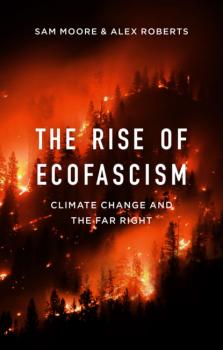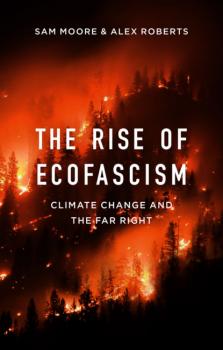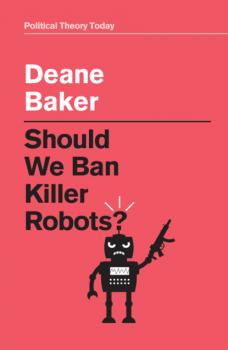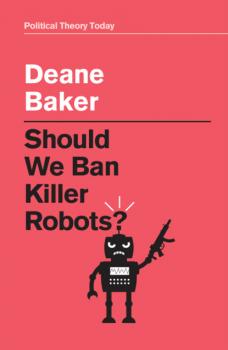Афоризмы и цитаты
Различные книги в жанре Афоризмы и цитатыThe Rise of Ecofascism
The world faces a climate crisis and an ascendant far right. Are these trends related? How does the far right think about the environment, and what openings does the coming crisis present for them? This incisive new book traces the long history of far-right environmentalism and explores how it is adapting to the contemporary world. It argues that the extreme right, after years of denying the reality of climate change, are now showing serious signs of reversing their strategy. A new generation of far-right activists has realized that impending environmental catastrophe represents their best chance yet for a return to relevance. In reality, however, their noxious blend of conspiracy, hatred and violence is no solution at all: it is the ‘eco-socialism of fools’. Only a real commitment to climate justice can save us and stop the far right in its tracks. No-one interested in the struggle against right-wing extremism and the crusade for climate justice can afford to miss this trenchant critique of burgeoning ecofascism.
Should We Ban Killer Robots?
Images of killer robots are the stuff of science fiction – but also, increasingly, of scientific fact on the battlefield. Should we be worried, or is this a normal development in the technology of war? In this accessible volume ethicist Deane Baker cuts through the confusion over whether lethal autonomous weapons – so-called killer robots – should be banned. Setting aside unhelpful analogies taken from science fiction, Baker looks instead to our understanding of mercenaries (the metaphorical ‘dogs of war’) and weaponized animals (the literal dogs of war) to better understand the ethical challenges raised by the employment of lethal autonomous weapons (the robot dogs of war). These ethical challenges include questions of trust and reliability, control and accountability, motivation and dignity. Baker argues that, while each of these challenges is significant, they do not – even when considered together – justify a ban on this emerging class of weapon systems. This book offers a clear point of entry into the debate over lethal autonomous weapons – for students, researchers, policy makers and interested general readers.
Hyperculture
In the wake of globalization, cultural forms of expression have become increasingly detached from their places of origin, circulating in a hyper-domain of culture where there is no real difference anymore between indigenous and foreign, near and far, the familiar and the exotic. Heterogeneous cultural contents are brought together side by side, like the fusion food that makes free use of all that the hypercultural pool of spices, ingredients and ways of preparing food has to offer. Culture is becoming un-bound, un-restricted, un-ravelled: a hyperculture. It is a profoundly rhizomatic culture of intense hybridization, fusion and co-appropriation. Today we have all become hypercultural tourists, even in our ‘own’ culture, to which we do not even belong anymore. Hypercultural tourists travel in the hyperspace of events, a space of cultural sightseeing. They experience culture as cul-tour. Drawing on thinkers from Hegel and Heidegger to Bauman and Homi Bhabha to examine the characteristics of our contemporary hyperculture, Han poses the question: should we welcome the human of the future as the hypercultural tourist, smiling serenely, or should we aspire to a different way of being in the world?
Black Panther and Philosophy
Explore the fascinating historical and contemporary philosophical issues that arise in Black Panther In Black Panther and Philosophy: What Can Wakanda Offer The World , a diverse panel of experts delivers incisive critical reflections on the Oscar-winning 2018 film, Black Panther , and the comic book mythology that preceded it. The collection explores historical and contemporary issues—including colonialism, slavery, the Black Lives Matter movement, intersectionality, and identity—raised by the superhero tale. Beyond discussions of the influences of race and ethnicity on the most critically and culturally significant movie in the Marvel Cinematic Universe, this book presents the moral, feminist, metaphysical, epistemological, existential, and Afrofuturistic issues framing Black Panther’s narrative. The explorations of these issues shed light on our increasingly interconnected world and allow the reader to consider engaging questions like: Should Wakanda rule the world? Was Killmonger actually a victim? Do Wakanda’s Black Lives Matter? Does hiding in the shadows make Wakanda guilty? What does Wakanda have to offer the world?Perfect for fans of the most culturally significant film in the Marvel Cinematic Universe, Black Panther and Philosophy will also earn a place in the libraries of students of philosophy and anyone with a personal or professional interest in the defining issues of our time.
Autopoiees ja tunnetus
Humberto R. Maturana, Francisco J. Varela
Julge, geniaalne, provokatiivne ja mõistatuslik teos määratleb ja uurib bioloogiliste süsteemide autopoieesi ehk eneseloomise mõistet – autopoieetiline süsteem on autonoomne, suletud, enesele viitav ja iseennast taasloov – ning käsitleb elussüsteemide tunnetust ning autonoomiat. Raamat koosneb kahest osast: „Tunnetuse bioloogia“, mille autor on Humberto R. Maturana, ning „Autopoiees: elu organisatsioon“, mille on kirjutanud autorid kahasse. Humberto Maturana Romesín (1928–2021) oli Tšiili bioloog ja filosoof, keda tuntakse autopoieesi mõiste ühe loojana. Tema töö õpetlase ja mitme teose autorina on mõjutanud paljusid valdkondi, peamiselt süsteemset mõtlemist ja küberneetikat. Francisco Javier Varela García (1946–2001) oli Tšiili bioloog, filosoof, küberneetik ja neuroteadlane, kes töötas ka Ameerika Ühendriikides ja Prantsusmaal. Ta sai tuntuks koos Humberto Maturanaga autopoieesi teooria loojana ning oli Mind and Life Institute’i kaasasutaja, edendamaks dialoogi teaduse ja budismi vahel.









